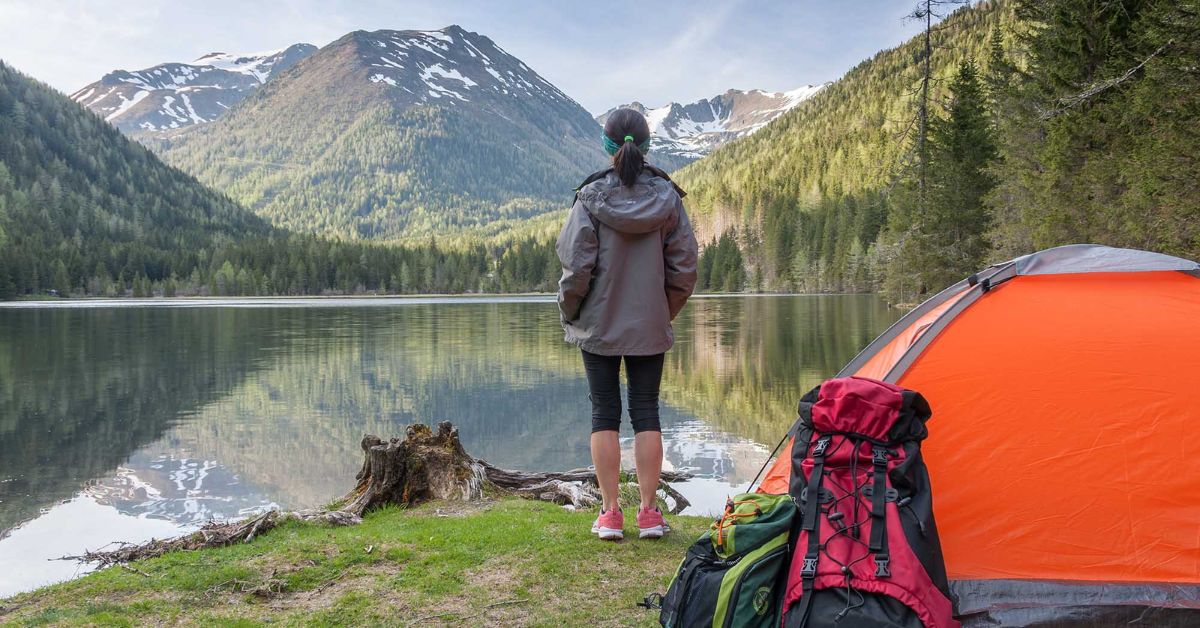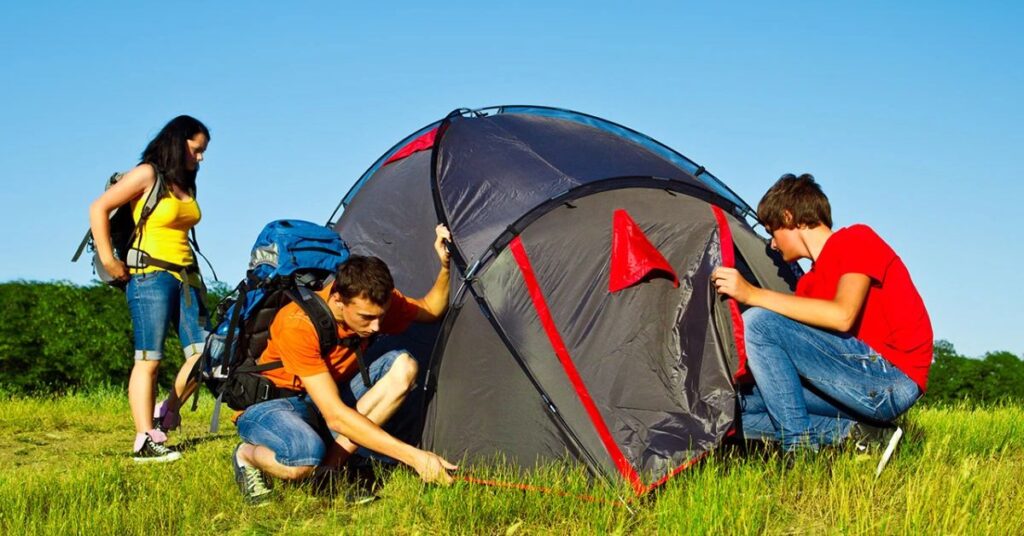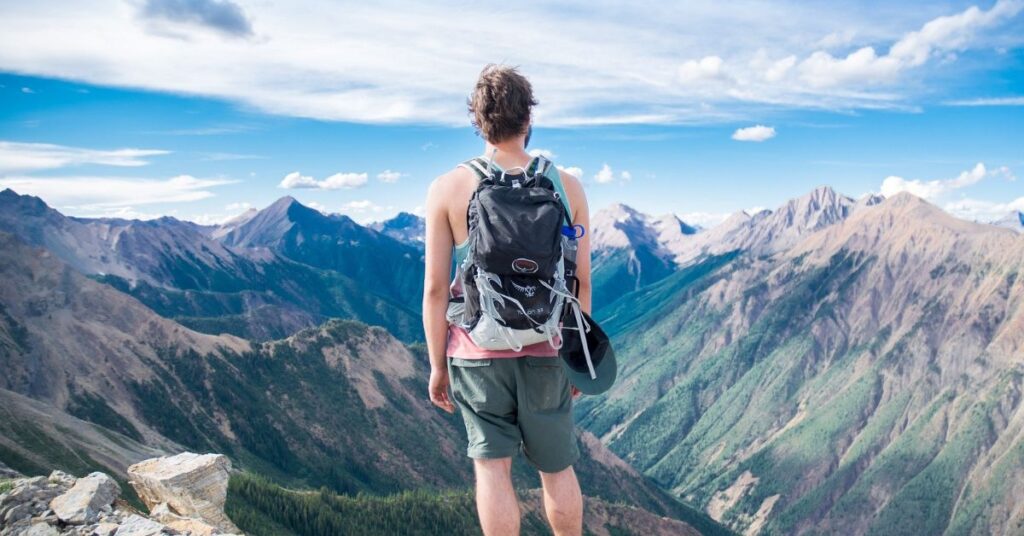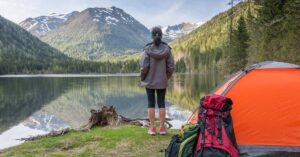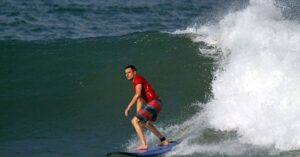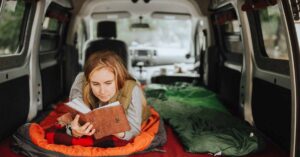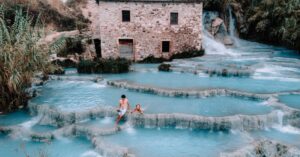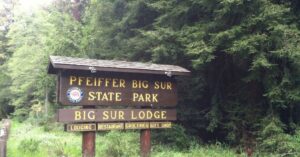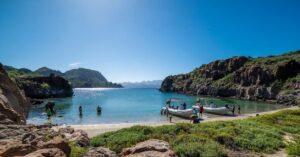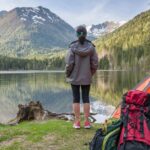Solo camping can be exciting and challenging. It offers freedom and self-reliance. You can go at your own pace and enjoy nature alone. However, it also has risks. Safety concerns are higher when camping alone. You might feel lonely or scared at times. There’s no one to share tasks or experiences with. Let’s explore these pros and cons in more detail.
Solo camping has good and bad points. It’s fun to be alone. You can do what you want. But it can be scary at night. You have to do all the work yourself. It might be unsafe if you get hurt. Some people feel lonely. Others enjoy the quiet. It’s important to think about these things before going alone.
Imagine waking up alone in the wilderness. The morning air is crisp. Birds sing nearby. No one else is around for miles. Is this your idea of heaven or hell? Solo camping can be thrilling or terrifying. It offers freedom but comes with risks. Let’s explore why some love it and others fear it.
The PROS of Solo Camping Adventures
Enhanced Self-Reliance
Solo camping teaches you to rely on yourself. You must set up your tent. You need to start your fire. All tasks fall to you alone. This can be empowering. You learn new skills quickly. Your confidence grows with each challenge. You discover what you’re capable of.
But it can also be stressful. There’s no one to help if things go wrong. You have to solve all the problems on your own. This can feel overwhelming at times.
Self-reliance has its limits. In emergencies, being alone can be dangerous. A simple injury could become serious without help. You must be extra careful.
Many campers enjoy this independence. They feel a sense of accomplishment. Every successful trip boosts their self-esteem. They return home feeling stronger. Others find it too much responsibility. They prefer sharing duties with others. They miss having someone to lean on. Solo camping isn’t for everyone.
Deeper Connection with Nature
Solo camping brings you closer to nature. There are no distractions from others. You can focus fully on your surroundings. The sounds and sights of nature become clearer. You might spot more wildlife when alone. Animals are less scared of one person. You can sit quietly and observe. This can lead to amazing encounters.
The peace of nature can be calming. You can think deeply without interruptions. Many find this helps reduce stress. It’s a chance to recharge your mind. But nature can also feel overwhelming. Storms might seem scarier alone. Strange noises at night can be unsettling. Some people find this isolation uncomfortable.
Being alone in nature requires caution. You need to be aware of your environment. Weather changes and wildlife can pose risks. You must stay alert at all times.
Many enjoy this deep connection. They feel more alive. Others miss having someone to share the experience with. It depends on personal preference.
Unmatched Freedom and Flexibility
Solo camping offers great freedom. You can go where you want. You can change plans anytime. There’s no need to compromise with others. Your schedule is your own. You can wake up early or sleep late. You can hike all day or relax at camp. No one else’s needs affect your choices.
Meals are simple when alone. You can eat what you like. You don’t have to cook for others. This can save time and reduce food waste. But this freedom can feel lonely. There’s no one to share beautiful moments with. You might miss having conversations. Some find the silence too much.
Making all decisions alone can be tiring. You have to plan everything yourself. There’s no one to help with tough choices. This responsibility can be stressful. Many enjoy this total control. They love the sense of adventure. Others prefer sharing experiences. They find solo trips less fun. It’s a personal choice.
Personal Growth and Reflection
Solo camping gives time for self-discovery. You face challenges alone. This helps you learn about yourself. You can grow stronger mentally. There’s plenty of time to think. You can reflect on your life. Many find answers to personal questions. The quiet can lead to new insights.
You learn to enjoy your own company. This builds self-confidence. You become more comfortable being alone. This skill can help in daily life. But too much thinking can be hard. Some people get stuck on negative thoughts. Without distractions, problems can seem bigger. This might cause anxiety.
Being alone forces you to face fears. This can be good or bad. Some people overcome fears. Others find it too stressful. Many campers return feeling changed. They understand themselves better. But some prefer group support for growth. Solo trips aren’t the only way to learn.
Independence
Solo camping teaches true independence. You make all decisions alone. You set up camp by yourself. You handle every task without help. This builds strong problem-solving skills. You learn to fix gear on your own. You become resourceful with limited supplies. Every challenge makes you more capable.
Independence boosts self-confidence. You prove you can survive alone. Each successful trip makes you feel stronger. You trust yourself more in daily life. But too much independence can be isolating. You might miss having someone to talk to. Sharing experiences can be fun. Some find solo trips lonely.
Being alone means no safety net. If you get hurt, help is far away. You must be extra careful in everything you do. This responsibility can feel heavy. Many enjoy this total self-reliance. Others prefer the comfort of companions. It depends on your personality. Solo camping isn’t for everyone.
The Cons of Solo Camping Adventures
Potential for Loneliness
Solo camping can feel lonely at times. There’s no one to talk to around the campfire. You can’t share beautiful moments with others. The silence might become too much. Meals can be less enjoyable alone. There’s no laughter or conversation at dinner. You might miss having someone to plan the day with. Decisions can feel harder without input.
Night time can be especially lonely. Strange noises might seem scarier. There’s no one to reassure you. Some people find it hard to sleep alone in nature. Long hikes can feel emptier without a companion. There’s no one to motivate you on tough trails. You can’t share the joy of reaching a summit. Photos are always selfies.
Some campers start to miss human contact. They might cut trips short. They realize they prefer group adventures. Loneliness can overshadow the benefits of solitude.
Limited Support in Emergencies
Solo camping can be risky in emergencies. If you get hurt, there’s no one to help. You must handle everything alone. This can be dangerous. Getting lost is scarier when alone. There’s no one to calm you down. You have to find your way by yourself. This can lead to panic.
If your gear breaks, you’re on your own. There’s no extra equipment from others. You must fix things or manage without them. This can be very challenging. Medical problems are more serious alone. A small injury could become a big one.
There’s no one to go to for help. You must treat yourself or seek aid alone. Weather dangers increase when solo. Flash floods or storms are harder to handle. There’s no one to share the work of securing camp. You must stay alert always.
Higher Costs for Equipment
Solo camping can cost more for gear. You need your own tent and sleeping bag. There’s no sharing equipment with friends. This means buying everything yourself. Safety items add to the cost. You might need a personal locator beacon. A satellite phone could be necessary. These are expensive but important when alone.
Food and cooking gear are pricier. You can’t split costs with others. You need enough fuel for just one person. This can be less efficient. Transportation costs more when solo. You pay for all the gas yourself. Parking fees are not shared. This makes trips more expensive.
Renting gear is costlier too. You can’t split rental fees. Some places have minimum rental periods. This can waste money for short trips.
Safety Concerns
Safety is a big worry in solo camping. There’s no one to watch your back. You must stay alert all the time. This can be tiring and stressful. Wildlife encounters are riskier alone. You might face bears or other animals. There’s no group to scare them away. You must handle these situations by yourself.
Getting lost is more dangerous solo. No one knows where you are. Search parties have less information. It could take longer to find you. Accidents are scarier when alone. A simple fall could become serious. There’s no one to give first aid. You must treat yourself or find help alone.
The night feels less safe by yourself. Strange noises seem louder. You might feel scared or anxious. There’s no one to calm your fears.
Read More:
Complete Guide to Surfing Cerritos Beach 2024
Frequently Asked Question
Is solo camping safe for beginners?
Solo camping can be safe for beginners if they prepare well and start with short trips in familiar areas.
What’s the biggest advantage of solo camping?
The main advantage is complete freedom to choose your schedule and activities.
How can I overcome loneliness during solo camping?
Bring books, journals, or podcasts, and plan activities to keep yourself engaged throughout the trip.
Conclusion
In conclusion, solo camping comes with benefits and drawbacks to consider. Getting away alone into nature allows full independence to explore at your own pace. But safety in isolation requires preparation. The solitude can be highly peaceful or mildly lonely depending on one’s preferences.
Planning carefully according to skills and terrain keeps the highlights of scenic reward and self-reflection without subjecting oneself to excessive risk. For those seeking adventure with self-reliance, solo trips reveal intimate insights when handling challenges independently in nature’s stunning surroundings. Both pros and cons require self-awareness to solo camp productively for an experience never forgotten.
